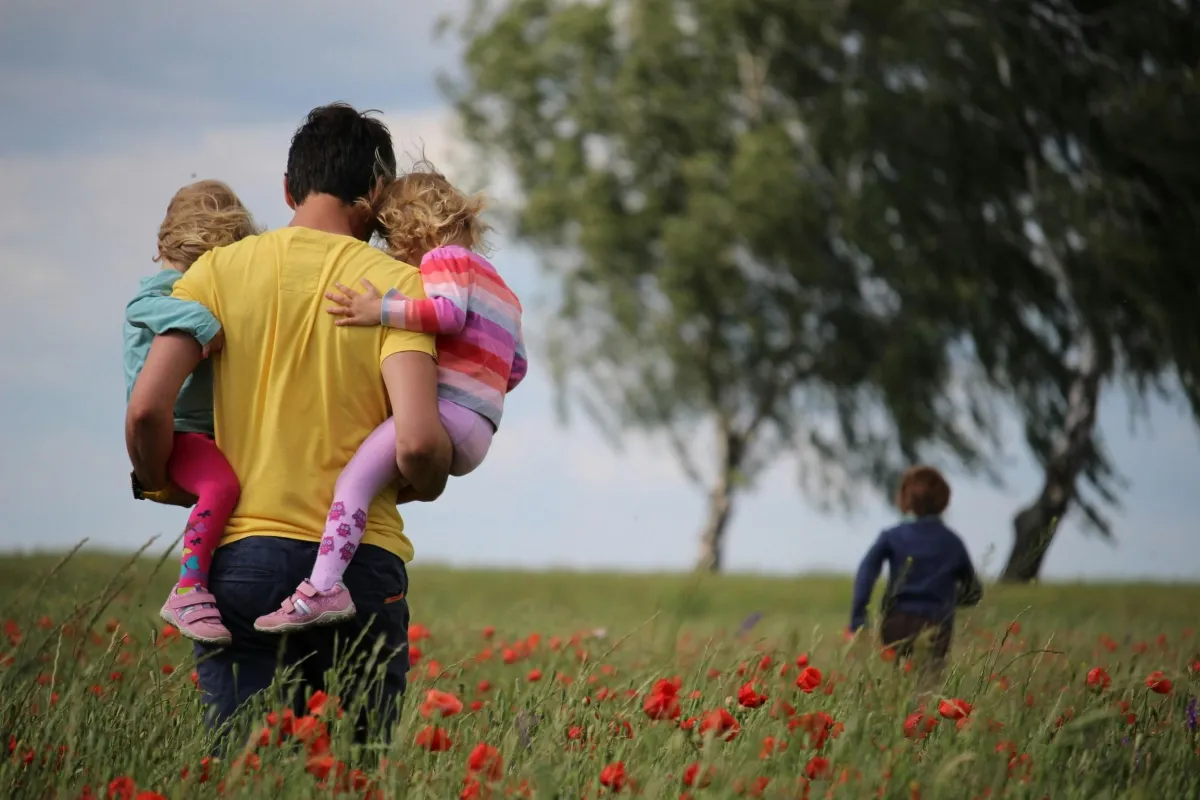
How Parent-Child Connection Empowers Anxiety Treatment
For children struggling with anxiety, the parent-child relationship forms the foundation upon which all effective treatment is built. Before any tool or strategy can truly work, children need to feel connected to their parents. This security helps them to know that they are understood, valued, and supported unconditionally. This connection isn't simply a nice-to-have; it's what makes anxiety treatment possible, effective and sustainable.
The Mirror Effect: What Parents Reflect Shapes How Children See Themselves
Children are remarkably attuned to their parents' responses, constantly scanning for cues about how they should interpret the world around them. This orientation towards a parent in hardwired through evolution and it creates what I call the "mirror effect"—children internalize what parents reflect back to them.
The combination of a parent consistently validating their child's emotional experience while simultaneously conveying confidence in their ability to cope, creates a powerful the powerful condition for children to take risks, face fears, and build resilience. This dual approach sends a crucial message: "I understand your feelings AND I believe in your strength."
This reflection process happens through:
Facial expressions that convey understanding rather than alarm when a child expresses worry
Tone of voice that remains calm and assured even when discussing challenging situations
Body language that demonstrates presence and attentiveness rather than tension or dismissal
Through these subtle but powerful signals, parents help shape their child's internal narrative about their own competence and resilience.
Building the Trust Bridge to Exposure Work
Research consistently demonstrates that effective exposure work—gradually facing feared situations—correlates strongly with the quality of the parent-child relationship. Exposure based interventions, grounded in Cognitive Behavioural therapy, are the gold standard treatment for anxiety. In general, children who feel securely connected show significantly greater willingness to approach anxiety-provoking situations when supported by a trusted caregiver.
This trust serves as a bridge that makes exposure work possible:
Safety Base: The parent becomes a safe harbor to which the child can return when feelings become overwhelming
Emotional Co-Regulation: Through connection, parents help children manage the intense emotions that arise during exposure
Confidence Transfer: A parent's genuine belief in their child's capacity to face challenges gradually transfers to the child's self-perception
The Three Pillars of Effective Parent Support
Helping an anxious child requires balancing three essential elements of support:
1. Emotional Validation
When parents acknowledge their child's feelings without judgment or minimization, they create space for authentic emotional processing. This validation might sound like:
"I can see you're feeling really worried about this. That makes sense, and it's okay to feel that way."
Validation doesn't reinforce anxiety; rather, it builds the emotional security needed to face it. When children feel their emotions are understood and accepted, they become more willing to examine those emotions rather than being overwhelmed by them.
2. Confidence Projection
How parents view their child's capabilities profoundly influences how children view themselves. When parents genuinely believe in their child's ability to handle challenges—and express this belief consistently—children begin to internalize this confidence.
Effective confidence projection involves:
Speaking about anxiety as a normal emotion that can be managed, not a permanent limitation
Recalling past successes and the skills the child has already developed
Expressing authentic faith in the child's resilience, even when progress is slow
3. Brave Behaviour Cheerleading
The final pillar involves actively celebrating a child's efforts to face fears, regardless of outcome. This isn't about praising perfection; it's about recognizing courage in all its forms:
Acknowledging small steps with specific praise: "I noticed how you took three deep breaths before entering the classroom—that shows real courage"
Emphasizing effort over outcome: "You tried something that felt scary, and that's what matters most"
Creating rituals to celebrate brave moments, building a family culture that values courage
Creating the Foundation for Treatment Success
Building this trust foundation requires patience and consistency. It’s tempting to push and rush your anxious child into challenging situations. However it’s clear that parents who take time to establish connection and trust first see significantly better outcomes over time.
This foundation includes:
Predictable responses to distress that build "earned security"
Consistent availability during difficult moments
Graduated challenges that respect the child's current capabilities
Transparent communication about what to expect in new situations
When children trust that their parent understands their experience and won't push them beyond what they can handle, they develop the courage to gradually expand their comfort zone. This trust doesn't happen overnight—it's built through hundreds of small interactions where children learn that their parent is both a safe haven and a secure base from which to explore.
Creating Long-Term Resilience
The ultimate goal of anxiety treatment isn't just symptom reduction but building resilience that carries forward into adulthood. Children who learn to manage anxiety within the context of supportive relationships develop an emotional toolkit that serves them throughout life.
Research consistently shows that early experiences of co-regulation with trusted adults create neural pathways that facilitate emotional regulation throughout development. These pathways don't just help children manage current anxiety - they establish patterns that support mental health across the lifespan.
Conclusion: Connection, Trust and Safety as Foundation for Healing
Working with anxious children reminds us that effective intervention isn't really about perfect technique or comprehensive protocols. While evidence-based approaches certainly matter, their effectiveness depends largely on the quality of relationship within which they're delivered.
Trust and connection create the emotional safety necessary for anxious children to begin exploring rather than avoiding their fears. This exploration, undertaken with supportive guidance, gradually builds the internal resources children need to face life's inevitable uncertainties with confidence rather than dread.
As parents and professionals, our most powerful intervention may be simply this: becoming a person with whom an anxious child feels truly safe. From this foundation of trust and connection, remarkable growth becomes possible - not because anxiety magically disappears, but because children develop the confidence that they can handle whatever feelings arise, supported by relationships that hold them securely through the journey.
This guest post was written by Dr. Zia Lakdawalla, Ph.D., C.Psych., Director and Child & Adolescent Psychologist at Foundations for Emotional Wellness. With a deep commitment to evidence-based, relationship-centred care, Dr. Lakdawalla helps children, teens, and parents navigate anxiety, emotional dysregulation, and behavioural challenges with compassion and clarity.
She specializes in building strong parent-child connections as a foundation for long-term resilience and emotional well-being. To learn more about Dr. Lakdawalla’s work or to explore how Foundations for Emotional Wellness can support your family, visit ffew.ca.

